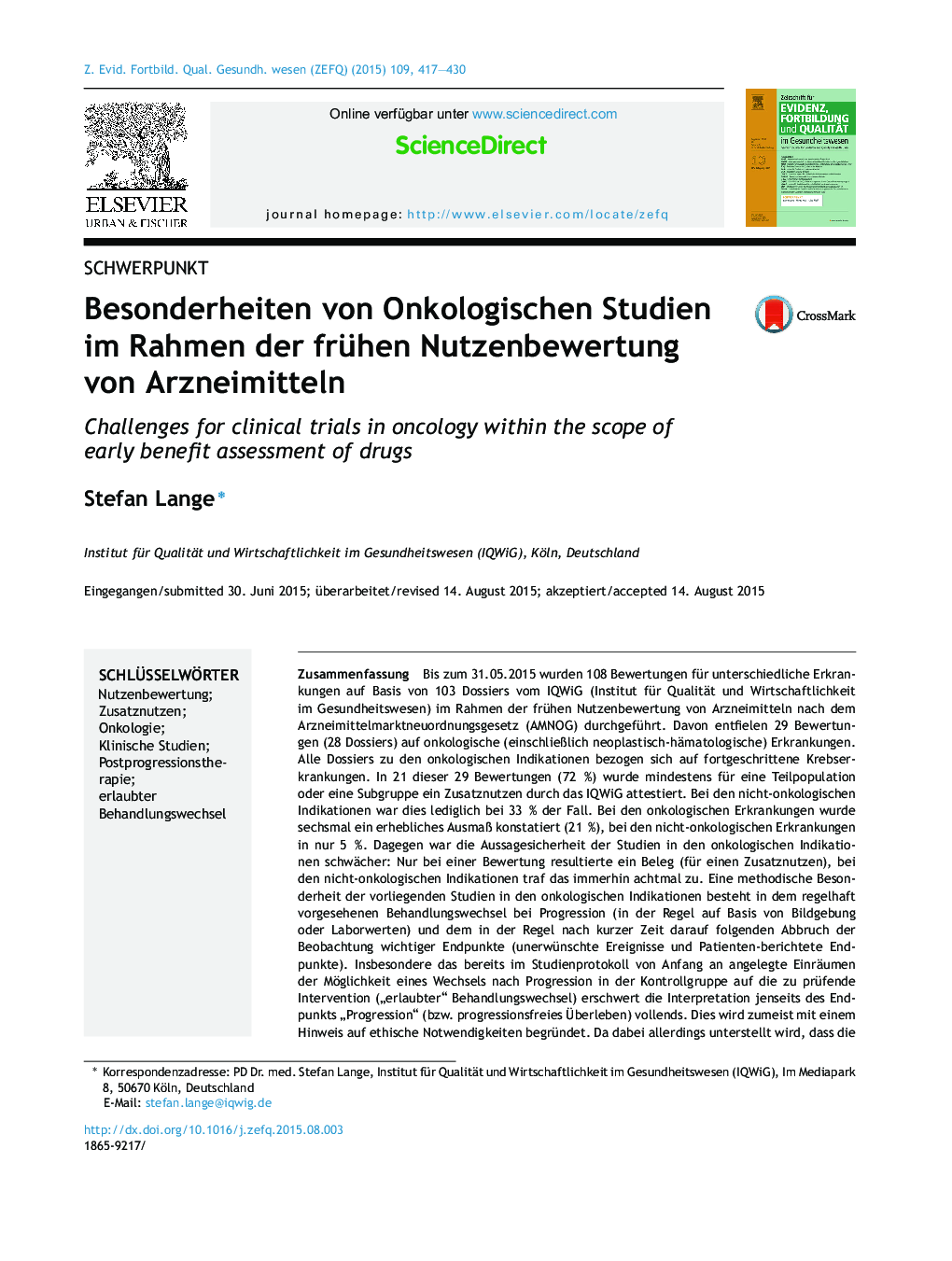| کد مقاله | کد نشریه | سال انتشار | مقاله انگلیسی | نسخه تمام متن |
|---|---|---|---|---|
| 10518573 | 952514 | 2015 | 14 صفحه PDF | دانلود رایگان |
عنوان انگلیسی مقاله ISI
Besonderheiten von Onkologischen Studien im Rahmen der frühen Nutzenbewertung von Arzneimitteln
دانلود مقاله + سفارش ترجمه
دانلود مقاله ISI انگلیسی
رایگان برای ایرانیان
کلمات کلیدی
موضوعات مرتبط
علوم پزشکی و سلامت
پزشکی و دندانپزشکی
سیاست های بهداشت و سلامت عمومی
پیش نمایش صفحه اول مقاله

چکیده انگلیسی
Until May 31, 2015 the German Institute for Quality and Efficiency in Health Care (IQWiG) conducted 108 assessments for various diseases on the basis of 103 dossiers within the scope of the early benefit assessment of drugs pursuant to the Act on the Reform of the Market for Medicinal Products (AMNOG). 29 of these assessments (28 dossiers) referred to advanced stages of oncologic (including neoplastic-hematologic) diseases. In 21 of these 29 assessments (72 %), IQWiG found an added benefit for at least one subpopulation or subgroup, compared to 33 % with non-oncologic diseases. For oncologic diseases, the extent of benefit was classified as “major” in six assessments (21 %), compared to 5 % for non-oncologic disorders. In contrast, the conclusions of the oncologic studies were less certain: only one assessment provided proof (of an added benefit); for non-oncologic diseases, this was the case in eight assessments. A distinctive methodological feature of the available oncologic studies is that, as a rule, treatment switching was planned in the event of progression (normally on the basis of imaging or laboratory findings) and that shortly afterwards the follow-up of important endpoints (adverse events and patient-reported outcomes) was normally discontinued. In particular, the pre-specified option in the study protocol allowing the control group to switch treatment to the experimental intervention after progression (“protocol-permitted treatment switches”) makes it extremely difficult to interpret the results beyond the outcome “progression” (or progression-free survival). This treatment switching is mostly justified by reference to ethical necessity. This, however, alleges that the experimental intervention (i. e., the new drug) is superior to the control intervention, which means that circular reasoning is unavoidable. But despite this, oncologic studies are better than their reputation. Hence, so far the results of the early benefit assessment of new drugs (regarding the existence and extent of an added benefit) are clearly better than expected. In this context, the IQWiG methods have not been shown to be extremely conservative. On the contrary: in all cases where IQWiG rated the extent of benefit as “major” for the oncologic indications, the Federal Joint Committee (G-BA) has so far not shared this assessment, and instead rated the extent of benefit to be smaller.
ناشر
Database: Elsevier - ScienceDirect (ساینس دایرکت)
Journal: Zeitschrift für Evidenz, Fortbildung und Qualität im Gesundheitswesen - Volume 109, Issue 6, 2015, Pages 417-430
Journal: Zeitschrift für Evidenz, Fortbildung und Qualität im Gesundheitswesen - Volume 109, Issue 6, 2015, Pages 417-430
نویسندگان
Stefan Lange,